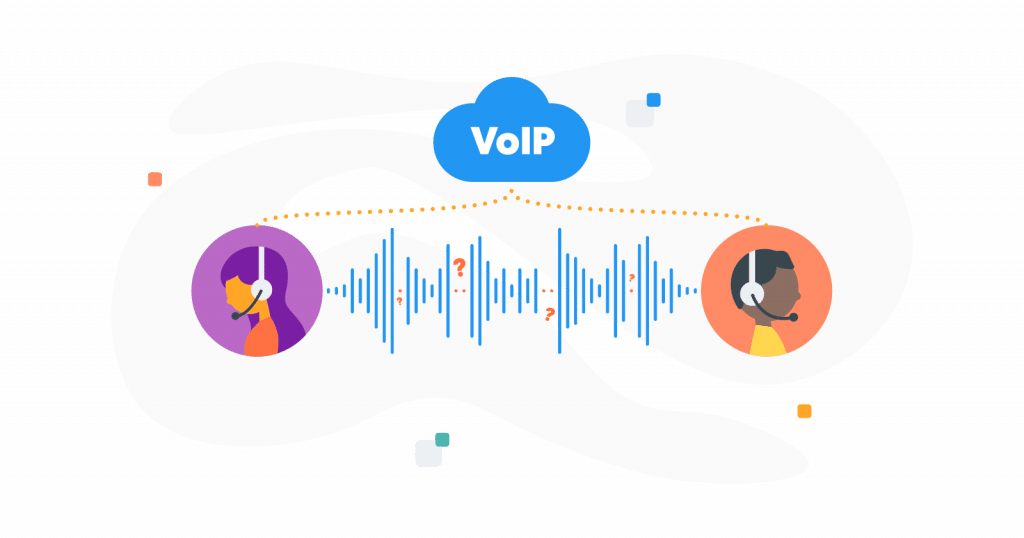Phone Solutions for Business – the Top Providers for 2025 and Ahead

In the past, companies that wanted powerful business phone systems had to pay a lot of money for them. It was expensive both to install the whole phone infrastructure iand to use a private branch exchange (PBX) system. Especially if there were multiple lines to manage. But as all businesses used to rely on phone calls as their main channel of communication with customers, getting a dedicated phone line was simply a must.
Fortunately, there’s now another option. Voice over Internet Protocol (VoIP) providers make setting up a phone system easier and cheaper than ever before. They also provide features like video conferences, team chats, and voicemail-to-email services.
That’s why 61% of businesses using traditional landline phones said that they intend to upgrade to VoIP systems when their current contracts expire.
Which phone solution for business should you pick out of the many available options on the market? We’ll tell you everything you need to know to make an informed decision. We will also compare three popular business phone solutions so that you’ll have an idea of what they offer.
How does a business phone system work?
Analog lines and PBX systems have been the most reliable calling options for a long time. They provide just enough useful features for businesses (such as call transfer and extensions) to justify the costs.
So even though a regular phone line was a lot of hassle to set up and use (including a dedicated room to host all the equipment and IT staff to keep it running), it was still the most popular choice for businesses.
But as the technology has evolved, analog phones relying on traditional landlines have been left in the dust by cloud platforms and VoIP services. Contrary to traditional ones, virtual phone systems are hosted online and maintained by the provider. As a result, they don’t require any dedicated office space.
What’s more, virtual phone systems can be configured through a user-friendly interface without having to ask an IT professional for help. And the differences don’t stop there; we’ve put together a quick comparison of the features of traditional phone lines and virtual cloud platforms in the table below.
Categories
Traditional phone system
Virtual cloud system
Initial costs
High – you have to pay upfront for dedicated equipment, cable infrastructure, and a PBX platform.
Lower – you only need to pay for the cloud platform subscription.
Regular usage costs
High – phone bills, maintenance costs, and any add-ons all increase the end cost.
Lower – the costs of calling through the internet are much lower, plus all maintenance is handled by the platform provider.
Contract length
Long – It is difficult to change or upgrade the phone system before your contract ends.
Flexible – cloud-based platforms offer both monthly and yearly contracts.
Ease of scaling
Low – upgrading the system is complicated and expensive.
High – you can easily add new features, users, or phone lines from the platform’s dashboard.
Portability
Low – can only be used in the location where the phone lines have been installed.
High – employees can use any device they wish and anywhere they are, as long as they have a stable internet connection.
How much can a business phone system cost you?
Where do those savings come from?
The best business phone systems for small companies
#1 CloudTalk
#2 Vonage
#3 CallHippo
#4 Aircall
Aircall is an advanced calling solution used by 15,000+ clients. It’s designed to speed up sales processes, boost communication with prospects, and close more deals. You can automatically dial multiple candidates in a back-to-back queue and surface crucial contact information directly within the phone interface.
- Rating on Capterra: 4.3.
- Pricing: Aircall offers two primary pricing plans: Essential for $30 per user/month and Professional for $50 per user/month. Users can also contact sales to discuss a custom plan that fits their business needs the best.
- Features: Aircall offers 53 features. Its biggest highlights include Automatic Call Distribution, Call Monitoring, Call Transfer, Call Recording, and Call routing.
- Integrations: Aircall offers over 100 integrations, including Salesforce, Hubspot, Pipedrive, Intercom, Monday, and more.
#5 Justcall
Justcall is a cloud phone system that provides businesses with a seamless calling experience. It’s a VoIP solution offering advanced features and tools for managing customer communications. The company was founded in 2016 and has grown to serve over 6,000 customers globally.
- Rating on Capterra: 4.1.
- Pricing: Justcall offers two primary pricing plans: Standard for $24 per user/month and Premium for $48 per user/month. Users can also contact sales to discuss a custom plan that fits their business needs the best.
- Features: Justcall offers 75 features. Its highlights include Automatic Call Distribution, Call Recording, Call Masking, International Phone Numbers, and Conference Calls.
- Integrations: Justcall offers 60 features, including MS Teams, Zapier, Hubspot, Pipedrive, Agile CRM, and more.
#6 Ringover
Ringover is a cloud-based phone system offering various features to enhance business communications, including call recording, IVR, and analytics. The software provides multichannel communication options, including voice, chat, and video.
- Rating on Capterra: 4.6.
- Pricing: Ringover offers two primary pricing plans: Smart for $19 per user/month and Power for $39 per user/month. Users can also contact sales to discuss an Enterprise plan that fits their business needs the best.
- Features: Ringover offers 73 features. Its highlights include Call Recording, IVR System, Real-Time Monitoring, Multichannel Communication, Analytics and Reporting.
- Integrations: Ringover offers over 80 integrations, including Salesforce, Hubspot, Freshdesk, Front, Google Meet, Monday, and more.
#7 8×8
8×8 is an evergreen telephony solution focusing on integrations and analytics. The provider is well-suited for enterprises, but lower-tier subscriptions also work for smaller organizations. There are many benefits 8×8 can offer its subscribers.
- Rating on Capterra: 4.
- Pricing: 8×8 offers three pricing plans: Express for $15 per user/month, X2 for $28, and X4 for $57 per user/month. Users can also contact sales to discuss the X6, X7, and X8 plans to discover which fit their business needs the best.
- Features: 8×8 offers 45 features. Its highlights include Call Center Management, IVR, Contact Management, Analytics, and Call Monitoring.
- Integrations: 8×8 offers 65 integrations, including Cognigy, Syndeo, Salesforce, Copper, MS Teams, Slack, and more.
Features you can use for remote work
Conclusion
Have trouble finding the right system?
Virtual phone solutions FAQs
How is a virtual phone service different from a landline?
Rather than using a server located in your office, a virtual phone runs on an online one. This means you don’t have to keep any equipment or wiring for the phone line, since the service provider will handle everything.
Is the call quality any worse with internet calls?
Quite the opposite. As VoIP platforms use wideband codecs for call quality, that allows you to enjoy crystal clear sound regardless of the distance.
How can I add new phone numbers or users to a virtual phone solution? Do I need to call someone from the IT department?
Not at all. You can create and add new phone numbers or users to the platform straight from its main dashboard in just a couple of clicks. This also means that you can make any changes the moment you need them, such as giving a new employee a platform access straight away.

























